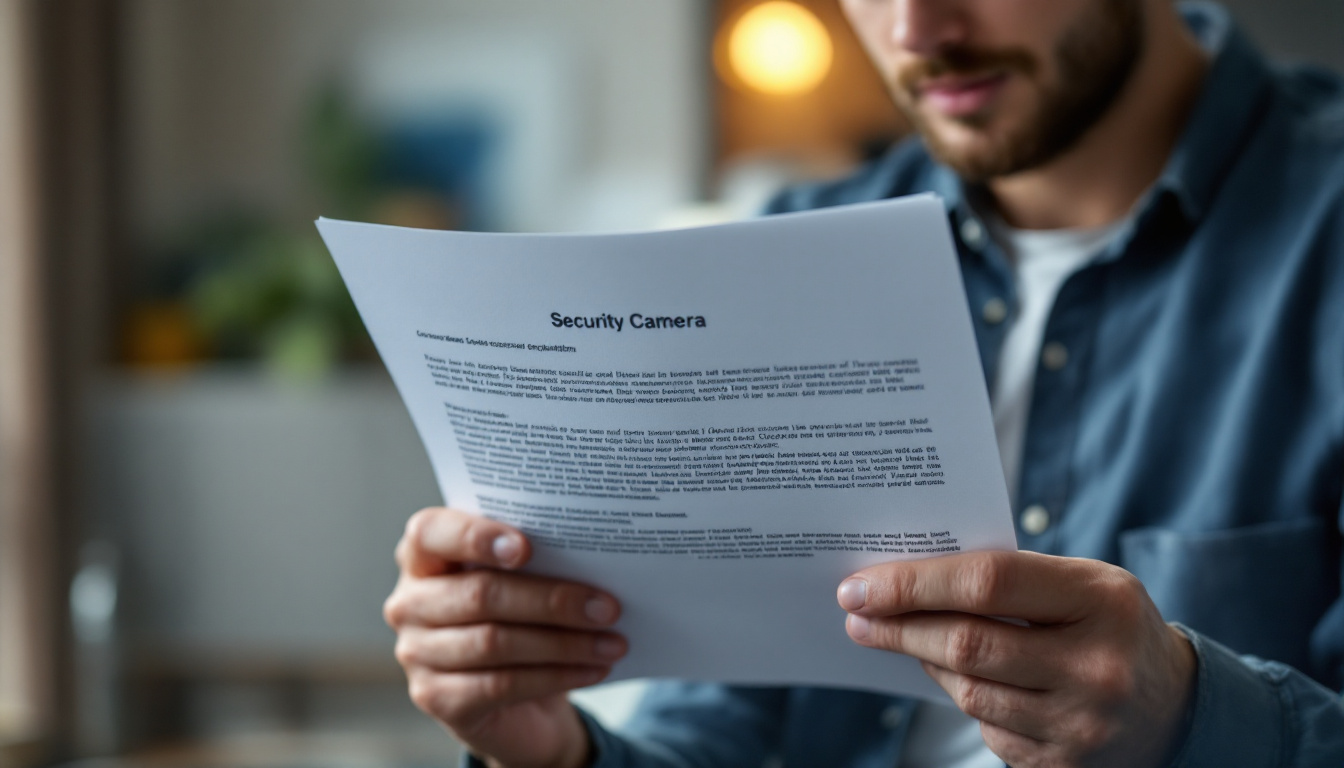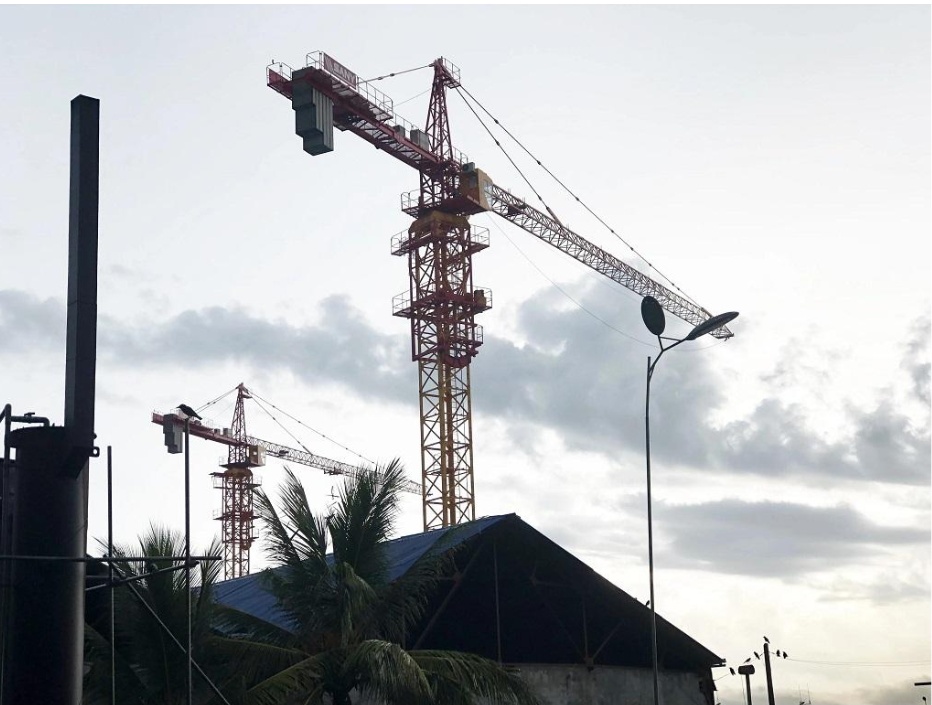In today’s world, the presence of security cameras in residential buildings, particularly apartments, has become increasingly common. As a tenant, it is crucial to understand the implications these surveillance devices have on your rights and responsibilities, as well as those of your landlords. This article aims to delve into the importance of security cameras, legal aspects governing their use, and navigating any dispute that arises from them.
The Importance of Security Cameras in Apartments
Security cameras have transformed the way residents perceive safety in their living environments. For many tenants, the presence of surveillance equipment serves not only as a deterrent to crime but also as a reassurance for personal safety.
Enhancing Safety Through Surveillance
One of the primary reasons landlords install security cameras is to enhance safety. A well-placed camera can monitor key areas such as entrances, lobbies, and parking lots. This added layer of monitoring can reduce incidents of theft, vandalism, and unauthorized access, fostering a sense of security among residents.
Moreover, the ability to review recorded footage can provide crucial evidence in the event of a crime, which can aid law enforcement in their investigations. This further highlights the integral role that surveillance plays in safeguarding tenants and property alike. In addition to crime deterrence, the presence of cameras can also promote a sense of community. When residents see that their safety is a priority for management, they are more likely to feel connected and engaged with their neighbors, leading to a more cohesive living environment.
Privacy Concerns Associated with Security Cameras
Despite the safety advantages, security cameras can raise significant privacy concerns. Tenants may feel uneasy knowing they are being watched, particularly if cameras are installed in common areas or near their windows. It is essential to strike a balance between ensuring safety and respecting individual privacy.
The placement and functionality of cameras must be carefully considered to avoid infringing on tenants’ rights. For instance, cameras should not be directed into private living spaces or areas where individuals have a reasonable expectation of privacy. Additionally, clear communication about the purpose of the cameras and the areas being monitored can help alleviate concerns. Landlords can foster trust by providing tenants with information regarding how footage is used, who has access to it, and how long it is retained. This transparency can help residents feel more secure in their homes while recognizing that their privacy is being respected.
Legal Aspects of Apartment Security Cameras
Understanding the legal implications surrounding security cameras is vital for both tenants and landlords. Various laws at both federal and state levels dictate the limitations and requirements regarding surveillance in residential properties.

Federal Laws on Surveillance Cameras
On the federal level, there are few strict regulations that govern the use of security cameras in rental properties. However, federal laws about wiretapping, video recording, and audio surveillance do apply. For example, the Electronic Communications Privacy Act restricts the use of cameras for listening to private conversations without consent.
Thus, apartment cameras should capture video only and not audio unless all parties involved have given prior consent. Violation of this regulation can lead to severe legal repercussions. Furthermore, the Federal Trade Commission (FTC) may also intervene if surveillance practices are deemed deceptive or unfair, particularly if they infringe on consumer privacy rights.
State-Specific Regulations
State laws further elaborate on the use of security cameras. Different states may impose stricter regulations concerning where cameras can be placed and how the recorded footage can be used. Some regions require explicit consent from tenants before installing cameras, especially in private spaces.
It is advisable for tenants to familiarize themselves with their local laws or seek legal advice if unsure about the regulations that apply in their state. Knowing these specifics can empower tenants to advocate for their privacy rights effectively. Additionally, landlords should ensure that they are transparent about their surveillance practices, as failure to do so could lead to mistrust and potential legal challenges. Clear communication about the purpose of the cameras, the areas being monitored, and how footage will be stored and used can help maintain a respectful landlord-tenant relationship.
Moreover, some states have specific provisions that address the installation of cameras in common areas versus private spaces. For instance, while it may be permissible to install cameras in hallways or lobbies for security purposes, placing cameras in areas like bathrooms or bedrooms is generally prohibited. This distinction is crucial for both parties to understand, as it directly impacts the balance between safety and privacy within residential settings.
Rights and Responsibilities of Tenants
Understanding your rights and responsibilities concerning security cameras as a tenant is essential in navigating this complex subject. Awareness and comprehension about these aspects will aid in fostering a cooperative living environment.

Tenant Rights Regarding Security Cameras
Tenants have the right to be informed about the presence of cameras and their recording capabilities. Transparency is crucial. Landlords are typically required to provide notice of any installations, along with information about how the footage will be used and stored.
Additionally, tenants have the right to express concerns regarding their placement if it infringes upon their privacy. They should feel empowered to question the rationale behind the camera’s location within common areas of the apartment complex. For instance, if a camera is positioned in a way that captures private moments, such as outside a tenant’s window or in a shared laundry room, it is important for tenants to voice these concerns to ensure their comfort and security in their living space. Open dialogue between tenants and landlords can lead to adjustments in camera placement, ensuring that privacy is respected while still maintaining safety.
Tenant Responsibilities for Security Measures
Aside from rights, tenants also have responsibilities when living in a property equipped with security cameras. While cameras can enhance safety, they should not replace personal vigilance. Tenants should take steps to secure their own living spaces, such as locking doors and windows and reporting any suspicious behavior.
Furthermore, tenants should respect the property and privacy of others. This includes refraining from tampering with security cameras or interfering with their operation. Understanding that these measures benefit the community as a whole can foster a sense of collective security. Additionally, tenants should be aware of the importance of educating themselves about the policies regarding the use of footage. Knowing how long video recordings are stored and who has access to them can empower tenants to engage in informed discussions about their safety and privacy rights. By being proactive and responsible, tenants contribute to a safer and more harmonious living environment for everyone involved.
Rights and Responsibilities of Landlords
Landlords also have a legal framework governing their use of security cameras. Their obligations extend beyond just installation; they must ensure they comply with privacy laws and maintain reasonable surveillance practices. This includes understanding the nuances of local and state regulations that may dictate where cameras can be placed, what types of areas can be monitored, and the duration for which footage can be stored. Failure to adhere to these guidelines can lead to legal repercussions and a loss of tenant trust.

Landlord Rights in Implementing Security Cameras
Landlords have the right to install security cameras to protect the property and its tenants. They can monitor common areas to bolster safety measures and prevent crimes. However, they must do so transparently and adhere to legal constraints. This right is particularly important in high-crime areas, where the presence of cameras can deter criminal activity and provide peace of mind to residents. Additionally, landlords may use footage from these cameras to resolve disputes or investigate incidents that occur on the property.
Before installing cameras, landlords are often required to notify tenants and explain the purpose of the surveillance. This notice ensures tenants are aware of their surroundings and establishes trust between both parties. Clear communication can also help mitigate concerns about privacy invasions, as tenants are more likely to feel secure when they understand the rationale behind surveillance measures. Furthermore, landlords should consider holding informational meetings or distributing written materials to address any questions tenants may have regarding the security system.
Landlord Responsibilities for Tenant Privacy
The responsibility to protect tenant privacy is paramount. Landlords must ensure that cameras are not directed at private living spaces and must avoid audio surveillance unless legally permissible. They are also tasked with informing tenants about how long footage will be retained and who will have access to it. This transparency is crucial, as it allows tenants to feel secure in their living environment, knowing that their personal space is respected and that any surveillance is conducted ethically.
By safeguarding tenant privacy, landlords can uphold a respectful relationship with their tenants, which contributes to a peaceful living environment. Additionally, landlords should regularly review their surveillance practices to ensure compliance with evolving laws and tenant expectations. Engaging in open dialogue with tenants about security measures can foster a sense of community and shared responsibility, encouraging residents to report suspicious activities and collaborate in maintaining a safe living space. This proactive approach not only enhances security but also strengthens tenant-landlord relationships, creating a more harmonious atmosphere within the property.
Navigating Disputes Over Security Cameras
Disputes can arise regarding the installation and operation of security cameras in an apartment setting. Knowing the appropriate steps to take can make resolution easier and more efficient.
Legal Recourse for Tenants
If tenants feel their rights are infringed upon, they have several options for legal recourse. They can consult an attorney specializing in tenant rights, file a complaint with a local housing authority, or engage in mediation with the landlord.
Addressing the issue openly and calmly can lead to a mutually agreeable resolution. Documenting all communication and incidents regarding camera installation can also serve as valuable evidence should a legal dispute arise.
Preventive Measures for Landlords
For landlords, proactively addressing tenant concerns can prevent disputes from escalating. Conducting surveys before installing cameras can help gauge tenant sentiment and identify potential concerns.
Regular communication with tenants about the existing surveillance policies can foster a transparent relationship. This can create cooperative living conditions while ensuring that safety is prioritized.
In conclusion, understanding the interplay between security cameras and tenants’ rights is crucial for all parties involved. Awareness of laws, rights, and responsibilities can lead to a more secure and harmonious living environment.










